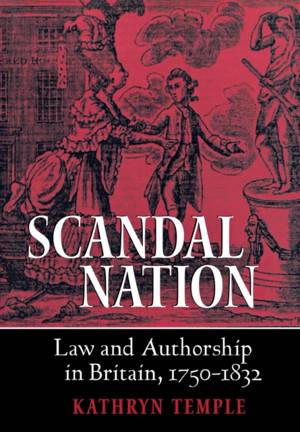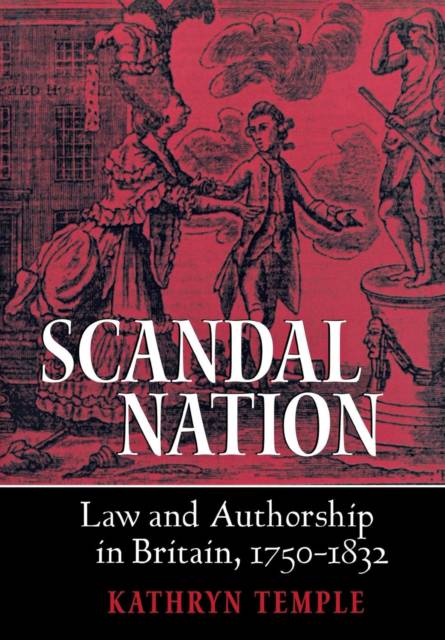
- Afhalen na 1 uur in een winkel met voorraad
- Gratis thuislevering in België vanaf € 30
- Ruim aanbod met 7 miljoen producten
- Afhalen na 1 uur in een winkel met voorraad
- Gratis thuislevering in België vanaf € 30
- Ruim aanbod met 7 miljoen producten
Omschrijving
Kathryn Temple argues that eighteenth-century Grub Street scandals involving print piracy, forgery, and copyright violation played a crucial role in the formation of British identity. Britain's expanding print culture demanded new ways of thinking about business and art. In this environment, print scandals functioned as sites where national identity could be contested even as it was being formed.Temple draws upon cases involving Samuel Richardson, Samuel Johnson, Catharine Macaulay, and Mary Prince. The public uproar around these controversies crossed class, gender, and regional boundaries, reaching the Celtic periphery and the colonies. Both print and spectacle, both high and low, these scandals raised important points of law, but also drew on images of criminality and sexuality made familiar in the theater, satirical prints, broadsides, even in wax museums. Like print culture itself, the "scandal" of print disputes constituted the nation--and resistance to its formation. Print transgression destabilized both the print industry and efforts to form national identity. Temple concludes that these scandals represent print's escape from Britain's strenuous efforts to enlist it in the service of nation.
Specificaties
Betrokkenen
- Auteur(s):
- Uitgeverij:
Inhoud
- Aantal bladzijden:
- 256
- Taal:
- Engels
Eigenschappen
- Productcode (EAN):
- 9780801440427
- Verschijningsdatum:
- 19/12/2002
- Uitvoering:
- Hardcover
- Formaat:
- Genaaid
- Afmetingen:
- 188 mm x 354 mm
- Gewicht:
- 503 g

Alleen bij Standaard Boekhandel
Beoordelingen
We publiceren alleen reviews die voldoen aan de voorwaarden voor reviews. Bekijk onze voorwaarden voor reviews.











